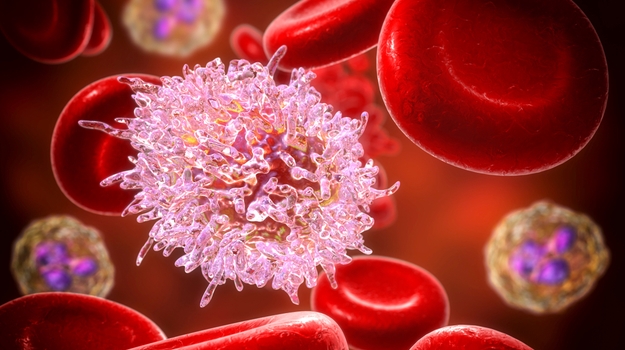PBAC/PBS update on CLL/SLL therapies
Here are updates on three novel therapies for the treatment of CLL and SLL.
Acalabrutinib as a first-line treatment
Acalabrutinib (Calquence®) has been available on the Pharmaceutical Benefits Scheme (PBS) for CLL and SLL since September 1 for the treatment of patients with relapsed or refractory CLL/SLL who are not suitable for treatment or retreatment with a purine analogue (also known as second line treatment of CLL/SLL).

At the July 2020 meeting of the Pharmaceutical Benefits Advisory Committee (PBAC), the decision was made not to list acalabrutinib for the first-line treatment of patients with CLL/SLL who are considered unsuitable for treatment with a purine analogue, either as a monotherapy or in combination with obinutuzumab (Gazyva®). The same decision also was applied for the first-line treatment of patients with CLL/SLL who harbour a 17p deletion.
Ibrutinib as a tablet for more dose flexibility
This month’s PBAC meeting considered a minor submission by Janssen requesting that ibrutinib (Imbruvica®) tablets have the same listing conditions as already applies to ibrutinib capsules. The Leukaemia Foundation took this opportunity to provide the PBAC with feedback sought from consumers via its disease-specific Facebook pages on their experiences with ibrutinib.
These responses about side effects and improvements to quality of life were as follows:
- A CLL patient, when treated with obinutuzumab, had experienced lethargy. Following relapse, this patient was placed on ibrutinib and saw a dramatic improvement in energy levels and did not experience any side effects. The patient said, “my energy level has been restored and I am happier in myself”.
- Another CLL patient who said it was likely that they would need to be placed on ibrutinib in the near future expressed concern that without subsidy they would not be able to afford the medication.
- A SLL patient who manages a SLL-specific online support group noted that those eligible for ibrutinib praised its effectiveness on improving quality of life. This person further stated that, “by having ibrutinib added to the PBS, my potential for my quality of life to drastically improve in an affordable manner means that not only is my life extended, but the time I have with my wife and kids is too.”
- Another patient who has been taking ibrutinib for eight months noted that they had not experienced any negative side effects and believed it had improved their blood test results.
The Leukaemia Foundation understands from information provided that ibrutinib capsules are currently available in a single dosage (140 mg), whereas the proposed tablets would be available in four different dosage strengths: 420 mg and 560 mg that would provide patients with a more convenient dosing regimen that reduces the pill burden, from three capsules daily to one tablet daily and which also may improve adherence; and 140 mg and 280 mg to allow for dose adjustments that may be required by patients to manage any adverse effects, improve tolerability, and/or be used when patients are receiving concomitant CYP3A inhibitors.
Venetoclax as a first-line therapy for CLL
On 1 March last year, venetoclax (Venclexta®) was listed on the PBS for CLL patients who have relapsed or are refractory to at least one prior therapy and who are unsuitable for treatment or retreatment with a purine analogue.
Another outcome from the PBAC’s July meeting this year was a positive recommendation for the PBS listing of venetoclax, and scheduling is expected by the end of the year. This listing is for venetoclax in combination with obinutuzumab for first-line treatment of patients with CLL who have coexisting conditions and are unsuitable for fludarabine-based chemoimmunotherapy.
The PBAC was satisfied that venetoclax plus obintuzumab provides, for some patients, an improvement in efficacy over current first-line CLL therapies in delaying progression.